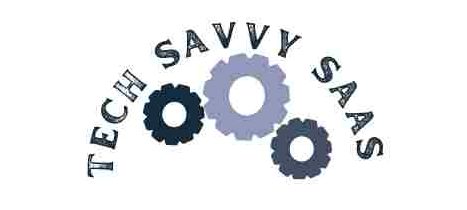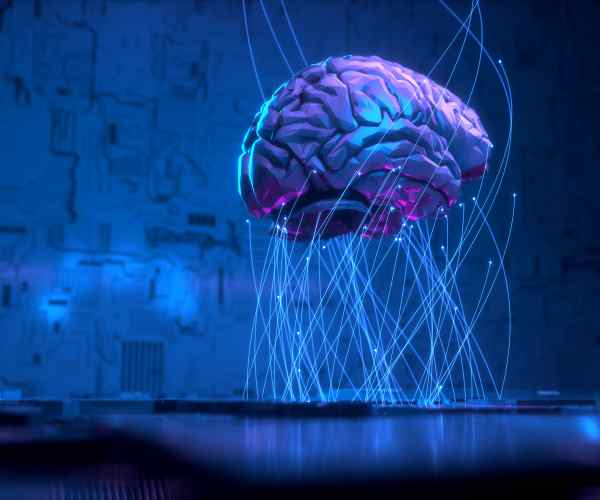Quantum computing is revolutionizing the tech world.
Predicting the future of quantum computing and its applications is both exciting and challenging.
This blog explores potential breakthroughs, real-life examples, and future impacts.

What Are the Basics of Quantum Mechanics?
Quantum bits (qubits) are the fundamental units of quantum computing. Unlike classical bits, which can be either 0 or 1, qubits can exist in multiple states simultaneously due to the principles of superposition and entanglement.
Superposition allows qubits to represent both 0 and 1 at the same time. This property can be illustrated by comparing a qubit to a spinning coin. While a classical bit is like a coin lying flat as either heads or tails, a qubit is like a spinning coin, showing a combination of both states until it is measured.
Entanglement is another unique property of qubits. When two qubits become entangled, the state of one qubit is directly related to the state of the other, no matter the distance between them. This phenomenon can be likened to a pair of gloves. If you receive one glove in the mail, you instantly know the state (left or right) of the other glove, even before opening the package containing it.
How do quantum computers differ from classical computers?
Quantum computers fundamentally differ from classical computers in how they process information. Classical computers use bits as the smallest unit of data, represented by 0s and 1s, to perform calculations sequentially. In contrast, quantum computers use qubits, which leverage superposition and entanglement to perform many calculations simultaneously.
This difference makes quantum computing a game-changer in technology. Quantum algorithms can solve complex problems much faster than classical algorithms. For instance, a classical computer might take millions of years to factor a large number, while a quantum computer could solve it in a matter of seconds.
Potential speed and efficiency improvements over traditional computing systems are immense. For example, in cryptography, breaking a 2048-bit RSA encryption using classical computers would take an impractical amount of time. A quantum computer, utilizing Shor’s algorithm, could potentially break this encryption in mere hours, revolutionizing the field of data security.
Research from the MIT Technology Review and Google Scholar highlights that quantum computing could drastically reduce the time required for machine learning tasks and data optimization problems. This efficiency leap is due to quantum computers’ ability to process vast amounts of data simultaneously, rather than sequentially.
Real-world examples of these differences can be seen in applications such as quantum cryptography and quantum simulations. For instance, D-Wave Systems has developed quantum computers specifically for optimization problems, showcasing significant improvements in solving complex logistical issues compared to classical computers.
The Current State of Quantum Computing
What Are the Recent Breakthroughs in Quantum Technology?
Recent advancements in quantum technology have been significant, driven by contributions from leading tech companies and research institutions.
IBM has made notable strides with its Quantum Hummingbird processor, which has 127 qubits. This development marks a crucial step toward achieving practical quantum computing. IBM’s roadmap envisions a 1,121-qubit processor named Condor, expected by 2023. These advancements are pivotal for enhancing quantum computing capabilities and addressing more complex problems.
Google achieved a milestone in quantum computing with its Sycamore processor. In 2019, Google claimed to have achieved quantum supremacy, demonstrating that Sycamore could solve a problem faster than the most advanced classical supercomputers. The specific problem involved sampling the output of a random quantum circuit, which was completed in 200 seconds, a task that would take approximately 10,000 years for the best classical supercomputers.
MIT has contributed through research and publications on quantum algorithms and error correction. Their work, detailed in the MIT Technology Review, has focused on improving the stability and reliability of quantum systems, which are crucial for practical quantum computing applications.
D-Wave has developed quantum annealers, such as the Advantage system, which incorporates over 5,000 qubits. These systems are designed to solve optimization problems that are challenging for classical computers. Research published in IEEE Trans has highlighted D-Wave’s progress in practical applications, such as optimizing logistics and supply chains.
What Are the Real-Life Applications of Quantum Computing Today?
Quantum computing is already showing practical applications in several fields.
Cryptography is one of the most prominent areas impacted by quantum technology. Quantum computers have the potential to break widely used encryption methods, such as RSA, by leveraging algorithms like Shor’s algorithm to factor large numbers efficiently. This capability necessitates the development of quantum-resistant cryptographic techniques.
In drug discovery, quantum computing is being used to simulate molecular structures and interactions more accurately than classical computers. For example, researchers have used quantum simulations to model protein folding and predict drug interactions, potentially accelerating the development of new medications.
Material science benefits from quantum computing through the simulation of material properties at the quantum level. This application can lead to the discovery of new materials with unique properties, such as superconductors or advanced polymers.
Case studies demonstrate the impact of quantum algorithms in various domains. For instance, portfolio optimization problems are tackled using quantum algorithms that outperform classical methods by handling complex constraints and large datasets more efficiently.
Differential equations, which are fundamental in modeling physical systems, are solved more effectively with quantum algorithms. Quantum computing offers improved solutions for these equations, which are crucial for fields such as physics and engineering.
Predicting the Future of Quantum Computing
What are the short-term predictions for quantum computing?
Over the next 5–10 years, we can expect substantial advancements in quantum computing technology. Quantum processors will become more powerful, with qubit counts increasing and error rates decreasing. These improvements will lead to more reliable and practical quantum systems.
Finance is one industry likely to see early impacts from quantum computing. Quantum algorithms can optimize financial portfolios and model market behaviors more accurately than classical methods. This capability could transform investment strategies and risk management practices.
Artificial intelligence will also benefit from quantum computing advancements. Quantum algorithms can accelerate machine learning processes and enhance data analysis, leading to more sophisticated AI models and applications.
Quantum computers are expected to solve complex problems that classical computers struggle with, such as simulating molecular structures or optimizing large-scale logistics problems. These solutions will open up new possibilities in various scientific and industrial fields.
What are the long-term predictions for quantum computing?
Looking 20–30 years ahead, the possibilities for quantum computing are visionary. Quantum technology could play a critical role in addressing global challenges, such as climate change. By improving climate models and simulations, quantum computing could help develop more effective strategies for mitigating environmental impacts.
Advancements in neural networks and quantum information processing will likely revolutionize data analysis and pattern recognition. Quantum neural networks could offer unprecedented capabilities in processing and interpreting complex datasets.
The long-term future of quantum computing promises transformative changes across multiple sectors, leveraging its unique capabilities to solve problems that are currently beyond our reach.
Potential Applications in Various Industries
How is quantum computing revolutionizing healthcare?
Quantum computing is making significant strides in healthcare, particularly in drug discovery and personalized medicine.
Quantum machine learning algorithms are being developed to analyze vast datasets more efficiently than classical methods. This capability allows for faster identification of potential drug candidates and a better understanding of complex biological processes. For instance, researchers at IBM and D-Wave have applied quantum algorithms to model protein folding, which is crucial for drug design and understanding diseases.
PubMed and Google Scholar contain research articles showcasing quantum computing’s impact on medical research. Studies in these databases highlight the use of quantum algorithms for simulating molecular interactions and predicting the efficacy of new drugs, leading to more tailored and effective treatments.
How is quantum computing enhancing finance?
In finance, quantum computing is enhancing cryptographic security and financial modeling.
Quantum cryptography improves data security by utilizing quantum key distribution (QKD) to create unbreakable encryption methods. This advancement addresses concerns about quantum computers potentially breaking classical encryption methods, such as RSA, which are widely used in secure communications.
Real-world examples include the use of quantum algorithms for portfolio optimization. Companies like JP Morgan and Goldman Sachs are exploring quantum computing for optimizing investment portfolios and managing risk. Quantum algorithms can handle complex constraints and large datasets more efficiently than classical methods, providing more accurate and dynamic financial models.
How is quantum computing accelerating artificial intelligence?
Quantum computing is poised to accelerate machine learning and AI development through innovative quantum algorithms.
Quantum algorithms can process large amounts of data and perform complex computations faster than classical algorithms. This capability enables more sophisticated AI models and enhances neural networks’ performance. For example, quantum-enhanced machine learning algorithms can identify patterns and make predictions with higher accuracy and speed.
Future impacts on AI and neural networks include improved algorithms for natural language processing and computer vision. Research in this area, detailed in the MIT Technology Review and IEEE Transactions, explores how quantum algorithms can enhance the efficiency and capability of AI systems.
How is quantum computing improving climate modeling?
Climate modeling benefits from quantum computing through improved accuracy in predictions and simulations.
Quantum systems can process and analyze complex climate data more efficiently, leading to more precise climate models. This capability helps in predicting weather patterns, climate change impacts, and environmental changes. For instance, quantum algorithms can solve optimization problems related to resource allocation and energy consumption more effectively.
Quantum computing’s role in environmental science extends to solving complex problems related to climate change and sustainability. Research published by Springer Nature and Deloitte highlights how quantum computing can aid in developing strategies for mitigating environmental impacts and optimizing resource management.
Challenges and Ethical Considerations
What are the technical challenges in quantum computing?
Technical challenges in quantum computing include overcoming hardware and software limitations.
Hardware limitations involve issues with qubit stability and error rates. Quantum circuits require precise control and error correction to maintain reliability. For example, superconducting qubits, while promising, face challenges related to coherence times and error rates.
Error correction is critical for reliable quantum computation. Quantum error correction codes are being developed to address errors that occur during quantum operations. Research in Nature and IEEE Transactions emphasizes the importance of these codes in ensuring stable and accurate quantum computations.
Quantum annealing presents challenges in terms of optimizing complex systems. D-Wave’s quantum annealers, for instance, face difficulties with scaling and addressing certain optimization problems effectively.
What are the ethical implications of quantum computing?
The ethical implications of quantum computing include privacy concerns and data security.
Privacy concerns arise from the potential of quantum computers to break current encryption methods, leading to vulnerabilities in data security. The development of quantum-resistant cryptographic techniques is essential to address these concerns and protect sensitive information.
Ethical dilemmas in quantum computing research involve issues such as the responsible use of quantum technologies and the potential for misuse. For example, advancements in quantum cryptography must be balanced with considerations of public key encryption and the implications of its potential vulnerabilities.
Addressing these ethical considerations is crucial for ensuring that quantum computing advancements benefit society while mitigating potential risks and ethical challenges.
FAQs
What is quantum computing?
Quantum computing represents a revolutionary shift in computing technology.
At its core, quantum computing utilizes quantum bits, or qubits, which can exist in multiple states simultaneously due to superposition. This capability allows quantum computers to perform complex calculations much faster than classical computers.
Quantum entanglement further enhances computational power by linking qubits so that the state of one qubit can instantly affect another, regardless of distance. This results in a parallel processing capability far exceeding that of classical systems.
The significance of quantum computing lies in its potential to solve problems that are currently intractable for classical computers, such as simulating complex quantum systems, optimizing large-scale problems, and breaking traditional encryption methods.
How does quantum computing differ from classical computing?
Quantum computing differs from classical computing in several fundamental ways.
Qubits versus bits: classical computing relies on binary bits that are either 0 or 1, whereas quantum computing uses qubits that can represent both 0 and 1 simultaneously due to superposition. This allows quantum computers to handle and process information in a fundamentally different way.
Processing power: Quantum computers can perform many calculations in parallel, thanks to their ability to process multiple states at once. Classical computers process information sequentially, which limits their speed and efficiency for certain tasks.
Quantum algorithms offer significant advantages in specific areas, such as factorizing large numbers and solving complex optimization problems. For example, Shor’s algorithm can factorize large numbers exponentially faster than the best classical algorithms, posing a threat to current cryptographic systems.
What Are the Current Applications of Quantum Computing?
Quantum computing is already making an impact in various fields.
Quantum cryptography is one of the most advanced applications, using quantum key distribution (QKD) to secure communications. This technology is utilized in the banking and defense sectors to protect sensitive information.
In drug discovery, quantum computers are used to simulate molecular interactions and accelerate the development of new medications. For instance, researchers at MIT are exploring quantum algorithms to model protein folding, a complex process crucial for understanding diseases and designing effective drugs.
Portfolio optimization in finance benefits from quantum algorithms that handle large datasets and complex constraints more efficiently than classical methods, providing more accurate investment strategies.
What Are the Future Predictions for Quantum Computing?
Future predictions for quantum computing include remarkable advancements.
In the next 5–10 years, expect continued progress in quantum hardware and the development of more reliable and scalable qubits. Industries such as finance and artificial intelligence are likely to experience significant impacts as quantum computing matures.
Over the next 20–30 years, quantum computing is projected to tackle global challenges such as climate change by improving climate models and optimizing resource management. Advances in quantum information processing and neural networks will likely lead to breakthroughs in various scientific and practical applications.
Quantum processors and quantum algorithms will continue to evolve, potentially solving problems that are currently unsolvable with classical computing methods.
How Will Quantum Computing Impact Everyday Life?
Quantum computing is set to bring several changes to everyday life.
Artificial intelligence and machine learning will benefit from enhanced quantum algorithms, leading to smarter and more efficient AI systems. For example, quantum neural networks may provide breakthroughs in natural language processing and computer vision.
In healthcare, quantum computing will accelerate drug discovery and personalized medicine, leading to better treatments and faster medical advancements.
Overall, quantum computing will likely lead to more efficient problem-solving and innovations across various sectors, improving daily life through advancements in technology and science.
Conclusion
The future of quantum computing is both promising and transformative.
Predicting the future of quantum computing involves understanding its current state, breakthroughs, and potential applications.
Staying informed about quantum computing developments is crucial as this field evolves rapidly.
The potential of quantum computing to revolutionize various industries and solve complex problems highlights the importance of continued research and investment in this cutting-edge technology.
More post
- The Rise of Edge Computing: A Glimpse into Tomorrow’s Technology
- 5G Technology: Shaping the Future of Connectivity
- Augmented Reality vs Virtual Reality: Which Will Dominate in the Future?
- The Future of Cybersecurity: Emerging Threats and Solutions
- Autonomous Vehicles: What the Future Holds for Self-Driving Cars?





